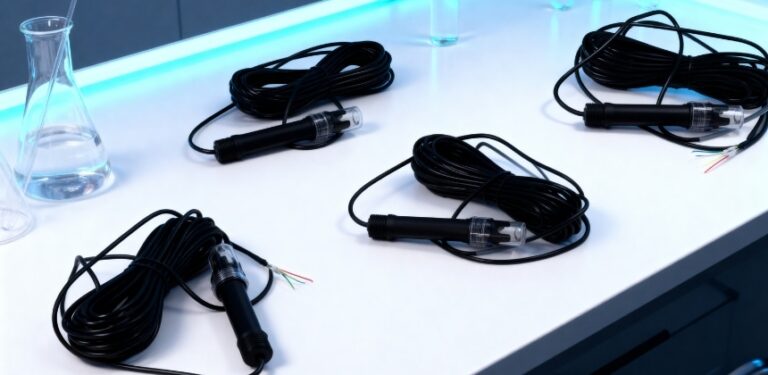12 Questions to Ask Before Joining a Koh Tao Divemaster Course
If you consider yourself a water baby, then the idea of turning your passion into a profession is your next big step. Koh Tao, Thailand, has become a hub for starting a Divemaster Course, thanks to its warm waters, vibrant marine life, and affordable training programs.
Yet, before committing to months of study and practice, it’s important to ask the right questions. From costs and certification agencies to diving rules and a career point of view, here we’ll explore 12 important questions to help you decide if a Divemaster course in Koh Tao is the right path for you.
- How much does it cost to become a Divemaster in Koh Tao?
The cost comes between 30,000 to 40,000 Thai Baht (THB), which depends on the diving center and what’s included. This usually covers instructor-led theory lessons, pool and ocean training, equipment rental, and certification.
Additional fees may apply for materials or membership. Total costs vary based on your current certification, which can sometimes be bundled with dive speciality courses for a discounted rate.
- What is the 120 rule in diving?
The 120 rule in diving, also known as the No-Decompression limit, is a simple method for determining how long you can safely stay underwater. It is about a certain depth without having to make special stops on the way up. To use this rule, you multiply the depth you plan to dive (in feet) by 1.2, and this gives you the maximum number of minutes you can stay at that depth safely.
Depth (in feet)×1.2=Maximum bottom time (minutes)
For example:
50 ft × 1.2 = 60 minutes
This means you can safely stay at 50 feet for up to 60 minutes without needing to stop on your way up.
- Is it worth diving in Koh Tao?
Yes, Koh Tao is considered the best place in Thailand for diving. Warm waters, calm conditions, and over 25 dive sites make it ideal for beginners and professionals. While biodiversity may not rival that of remote destinations like Raja Ampat or Koh Tao, Koh Tao is known as a training hub with accessible and affordable courses.
- Is PADI or SSI more expensive?
SSI (Scuba Schools International) is less expensive when it comes to application and membership fees. While both certifications are recognised worldwide, SSI’s digital learning tools and lower costs can be a budget-friendly option to conscious divers.
- Can I convert SSI to PADI?
Yes. If you are certified with SSI, you can continue your training with PADI without repeating previous levels. Both agencies follow international diving standards, so your existing certification is recognised. This means you don’t need to “convert” formally; instead, you can simply enrol in the next PADI course, and your SSI qualification will be accepted as the provision.
- Does PADI recognise SSI?
Yes, both follow international standards, and PADI recognises SSI certification for equipment rental, dive trips, and further training.
- How much does a divemaster get paid in the UK?
In the UK, the average annual salary ranges from £36,000 to £56,000, which depends on experience and location. Many Divemasters increase their income by becoming a instructor, guiding, or doing seasonal work.
- What is the most recognised scuba certification?
The PADI Open Water Diver certification is recognised globally, but SSI and RAID also have international credibility and acceptance. It is mainly popular in places like Koh Tao.
- How many days do you need to dive in Koh Tao?
Most Open Water courses need about 4 days, while divemaster courses ideally take around 1-2 months, which depends on your progression and daily dive count.
- What is the 1/3 rule in scuba diving?
This is a simple guideline for managing your air supply: use one-third of your air on the way down, one-third for the dive, and reserve one-third for ascent and safety stops to ensure a safe return to the surface.
- Are Scuba Diving and Open Diving Different?
Yes, both the Open Diving course and Scuba Diving are different. Open Water Diving refers to diving in any natural body of water—sea, lake, or ocean—that requires certification.
At the same time, Scuba Diving means diving with a self-contained underwater breathing apparatus, whether in open water or in controlled environments such as pools.
- Do scuba certifications expire?
Most entry-level scuba certifications do not expire. However, it is recommended that you complete a refresher course if you haven’t dived for a year or more to maintain your skills and safety awareness.
Last Words
Joining a Divemaster Course in Koh Tao is more than just training — it’s a lifestyle choice. By asking the right questions about costs, rules, certifications, and career prospects, you can prepare for a safe and rewarding journey. Koh Tao’s affordability, accessibility, and vibrant dive community make it one of the best places in the world to take this step. With the right mindset, you’ll not only earn a professional qualification but also gain experiences that last a lifetime.







